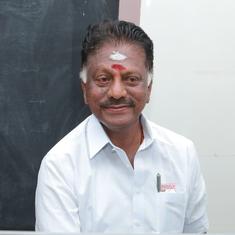‘Your conduct does not inspire confidence,’ SC tells Allahabad High Court’s Justice Varma
The bench, while reserving its verdict, asked the judge why he only approached the court after an in-house committee made adverse findings against him.

The Supreme Court on Wednesday remarked that the conduct of the Allahabad High Court’s Justice Yashwant Varma did not inspire confidence, since he only moved the top court after an in-house committee came out with adverse findings against him, Bar and Bench reported.
A bench of Justices Dipankar Datta and AG Masih reserved its judgement on Varma’s petition challenging the recommendation made by former Chief Justice of India Sanjiv Khanna to impeach him in the unaccounted cash row.
The bench asked Varma why he did not challenge the in-house committee at the outset if he believed it was unconstitutional, Live Law reported.
“The points you are raising are major, but could have been raised before, and thus your conduct does not inspire confidence, and your conduct says a lot,” the court said.
Unaccounted cash was allegedly recovered at Varma’s official residence in Delhi when emergency services responded to a fire there on March 14. He was a judge at the Delhi High Court at that time. The judge said he was in Bhopal when the cash was discovered and claimed that it did not belong to him or his family.
Amid the row, he was transferred to the Allahabad High Court.
The report of the in-house inquiry committee into the matter, released on May 3, concluded that there was “sufficient substance” in the charges against Varma. It held that the judge’s misconduct was “serious enough to call for initiation of proceedings for removal”.
On Wednesday, Varma’s counsel Kapil Sibal argued that the in-house committee had not found out to whom the money found at his residence on March 14 belonged, Live Law reported. The Supreme Court, however, said that this was not the question before the panel.
The bench said that the in-house report was only preliminary, and that Varma could only be removed as per procedure in Parliament.
To impeach a judge in Parliament, a removal motion is required to be signed by 100 Lok Sabha MPs or 50 Rajya Sabha MPs. If the motion is admitted, a three-member judicial committee investigates the matter. The Parliament votes on the impeachment if the committee finds misconduct. If the motion gets two-thirds of the votes, the president is advised to remove the judge.









